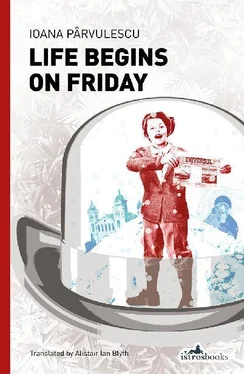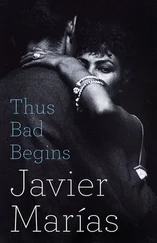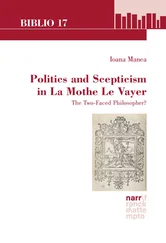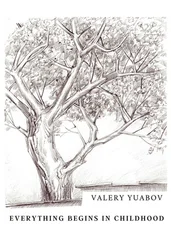The next day the servants were astonished when the young lord wished to find out the names of all those who owned houses on Strada Fântânei, next to St Joseph’s Cathedral. They were astonished, but then again they were not overly astonished, since it was obvious that a woman must be behind it. And Toader, the cleverest of them, with his permanently jolly face, as if the world were eternally on holiday, told him directly which were the houses with young girls: the Petrescu family, with five daughters. The poor father: they needed a whole shop to supply all the dresses, a real catastrophe! And of the five, only the youngest was beautiful. Then there was Mr Văleanu, the merchant, with a daughter of seventeen, like a fairy princess, named Elisabeta, like the Queen. Then there was Margulis, the doctor, also with a daughter of seventeen, a spare little thing, whose name Toader did not know, but who, he thought, was not worthy of attention. Toader was sure that his young master’s preference was for Elisabeta the fairy princess, endowed with all the plump gifts a girl needed, but Alexandru was equally sure that she was not the sleeping girl in the coach. He did not believe that she could be one of the five sisters; she seemed to be an only child. After driving his gig (he did not yet have a carriage) twice along Strada Fântânei, Alexandru abandoned the whole affair. It seemed to him that he forgot about it and actually did forget. But three years later, when he examined the list of guests invited to the name day of his older brother Mișu, a student in Paris, who returned to Bucharest for family occasions, he saw the names Dr and Mrs Leon Margulis . He had not forgotten that name.
‘Is Miss Margulis not invited?’ asked Alexandru in passing.
Mișu was making connections within the medical world, and for the moment professional interests rather than those of the heart took up most of his time.
‘As far as I know, the doctor has two children, a girl, Iulia, and a boy, Jacob, who… why do you ask?’
‘Because I once had occasion to do them a small service and I would like to see Miss Margulis again. Iulia,’ he then added, aware that it was the first time he had uttered her name.
That was all it took for Mișu to include her on the guest list. Alexandru had selected a simple outfit for his meeting with the sleeping girl: a double-breasted jacket rather than a frock coat and a purple necktie. He gave the impression of being a recent lycée student, which quite suited him. His rather long hair and moustache were a soft auburn, but his cheeks were somewhat harshly chiselled, twitching slightly when he pressed his lips together, as if from a passing shudder. He was a man of the world and it did not take him long to realize that the Margulis family was not very wealthy.
Therefore he did not wish to make a show of his wealth. He still did not know whether dark eyes or blue eyes would come to Mișu’s party. He saw her enter and although he was quite far away from the door he crossed the crowded salon. He felt as if he were advancing too slowly, as if he were treading sand. People kept stopping him and he had to waste seconds with them that were as precious as gold. Finally, he reached her. And when Iulia held out her hand and he kissed it, her eyes were lowered. Then, she looked straight at him and he saw her green, child-like eyes. She did not know that she was the heroine of a long search, she did not know that she was his sleeping girl, and that with her eyes open she seemed devoid of mystery. He had thought so intensely about blue eyes that the mismatch irritated him. Hitherto he had not discovered that in such cases every defect plays to the advantage of sentiment. She was indeed a spare little thing. And her curly fringe was quite unusual. He took care of her, that is, he took care of his story. He accompanied her. He fended off the vulgarians, because there is one in every company, and today vulgarity is more common than ever before. He introduced her and her family to people. He noticed only that the young lady’s mind was elsewhere. From time to time she smiled at somebody in her mind, not at him. He would have liked to know where she was, but when he asked her: ‘Where are you, Miss?’ Iulia answered: ‘In a carriage, on a long journey. Comme elle est sage! There was something so innocently well behaved about her face that Alexandru suddenly wished to see it ravished. When the three left, he conducted them to the front door, and in the play of the lights he saw his and Iulia’s shadows stretching over the ground: two grey outlines that kept touching. He again kissed her white hand, deliberately placing his lips far lower than was fitting. And his warm lips felt something like silk.
It is strange that regardless of whether bad or good enters you, the effect is the same. What is more, when good enters you, it can be for the worse. Alexandru did not know whether he was in love with Iulia, and better he did not know. He was seeing Margareta again, after they had been separated for a time, but he felt the need to see once more the girl from his unknown story. And the opportunity came sooner than he expected: the ball thrown by the Lyric Theatre, with a tombola to raise money for orphaned children or war widows, he no longer knew which. It was the ball when he had invited her to dance and then abruptly decided to leave without a word of farewell. Margareta was waiting for him and it did him good to be with her the whole night, so that he might forget the dance with Iulia. But Margareta’s laugh was too loud, and he barely restrained himself from telling her that it irritated him. His girl had kept her eyes almost closed, as she had then, with her head to one side, and it reminded him with extraordinary vividness of the coach ride when he had seen her for the first time. One thing he had been able to see: she did not resemble the women who played cunning games with men’s minds and with whom he for one was prematurely sated. She was different. She struck him with a kind of inner strength, of which she seemed not to be aware. Or was she?
But in the meantime things had developed badly for them. The Lyric Theatre had burned almost to the ground. Alexandru thought with a kind of horror that the ballroom where he had danced with her, where he had sought her breath, her perfume, had been reduced to ashes. It was as if a part of his story had burned, as if her perfume, her steps, her breath, his love had burned. And he had done nothing to save it. He was now in the cruellest situation of his entire life, a situation so bad that he did not know who could save him. Why had he thought that she was the one? What powers could a physician’s daughter, a mere novice in the ways of life, have? He stopped the carriage by a newspaper vendor and asked for Universul . He opened it fearfully and there, amid the sparsely falling snowflakes, he read the unsigned front-page article: Young Aristocrat Slain near Băneasa Forest. He saw blackness before his eyes: he was dead!
The first headline that caught his eye was Young Aristocrat Slain near Băneasa Forest . In other words, the fair-haired man had died! Petre breathed a sigh of relief. Maybe he ought not ‘to surrender the burse,’ but when he read the announcement in the Gazette and saw the reward, he took fright. He told his wife everything and she advised him to go and hand it in, so that he could lay his hands on the money. But Petre did not have the courage, and after the talk with Mr Costache, he made his decision and told the woman it was final: ‘I’ve got to get rid of it. I don’t know where to throw it. In a stream? In a lake? In the forest? In a ditch?’
On Sunday he had quickly scouted some streams and lakes, and if he had had it with him, he would have thrown it in the water. He was afraid it might float. He was afraid he might be seen. That devil of a child had followed him. He took out the wallet and examined it carefully yet again. In the middle there was a circle embossed on the leather, with three interwoven letters within: R. O. Z. When you opened it, you found lots of pockets and compartments, some of them visible, some of them hidden; it had taken him a long time to discover them all. That wallet was a real jewel of human ingenuity; in fact it was combination of wallet and portefeuille . Unfortunately, all the pockets were empty except one. Disappointed, Petre looked inside the deer-skin ‘treasure’ once more: a key! It was a rather small key, but heavy and gilded, with elaborately cut bits on both sides of the shank, covering exactly half the shank. Without a doubt it was the key to a safe! Like all genuine treasures, it was a thing that was of use to only a few; to Petre and his wife it was of no use whatever. He had no way of finding out where the key came from, and not being a burglar by trade, but rather a coachman, even if by miracle he found out where the safe was, it would still have been in vain. Petre was reluctant to hand the object in now that the fair-haired man had died, and following the conversation with Mr Costache (“beware, if you are hiding anything, you will be in big trouble”), He was the only man in Bucharest who, reading Universul , had made the connection between the news of the ‘young aristocrat’s’ death and ‘a wallet has been lost.’ He pieced things together thought by thought, as follows: the fair-haired man’s shooting and the wallet’s loss had happened on the same morning. Probably the fair-haired man had stolen the wallet and told the people in Strada Teilor (and how strange that he had returned to die in the same place, ‘how everything is written by fate!’) that he had lost it there. Or maybe they hadn’t believed him and had ‘shot ’im’? But to be more certain, had they nonetheless taken out the announcement? The people from the new houses, those wonderful new houses, definitely knew that the young man had been taken to Dr Rosenberg. Then why did they not say that they knew him? Obviously, there was a lot of money at stake and great danger. Nobody knew yet that the wallet had not been lost, but stolen, perhaps a second time, and the he, Petre, had become a thief. What had got into him all of a sudden, when up until Friday he had been an honest man? You’re honest an entire lifetime, and all of a sudden you become a ‘burse snatcher, a bickbocket,’ a villain. The more he thought about it, the more frightened Petre became. And now the fair-haired man had died, what if the same fate awaited Petre, the same as in stories about objects under a curse, which bring you misfortune if you steal them? Petre began to pant in terror and felt that he had to make an urgent trip to the backyard privy. He took the copy of Universul , tore each sheet into eight pieces and rushed outside. In less than five minutes he had rid himself of both his fear and the wallet. None but the vidangeurs would be able to find it now, but it is hard to imagine them rummaging through the not exactly pleasant-smelling raw materials of their labour. Although they do say that where there’s muck there’s brass.
Читать дальше












